Yarrgh! Real Pirates!
by Edward
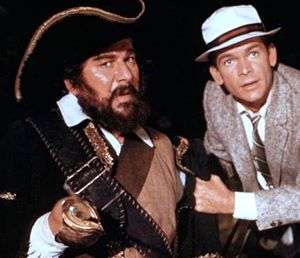
Ustinov - officially awesome pirate
Man, pirates are awesome, aren’t they? Yarrgh! Shiver me timbers! Batten down the hatches! Full sail ahead! It’s a life you’re probably envious of – no rules, no one to tell you when to wash, and plenty of rum as long as you get there before Jack Sparrow. Sure, there are downsides – scurvy, being constantly on the run, and, if you’ve been sailing for too long, there’s the situational homosexuality, but everyone would gladly take those negatives in their stride for the ability to defeat ninjas, and be able to do whatever you want. Sticking it to the man! A pirate I was meant to be. Trim the sails and roam the seas! Well… not nowadays. Sure, Monkey Island and Pirates of the Caribbean romanticise the idea of piracy somewhat; the latter asking us to side with these troublesome yet lovable figures as they find treasure, deal with the supernatural, and stick it to those British Empire (what is it with the Americans and making the British the bad guys?) bastards.
Flash forward to today though, and the image of piracy is something that is wholly different. Those crazy swashbucklers, with their sea shanties and need to ravish the ladies, have turned into Somalis with speedboats and modern weaponry, trying to make a living for themselves in a horrifically impoverished part of the world. Then, on the other hand, thanks to the technological age and the proliferation of the internet, we too can become a new kind of pirate, downloading anything we want at the press of a button for free. Both groups of these new-age pirates can stick it to the man just like in the days of old.
When it comes to videogames (and Somalis, but that’s not what I want to focus on here), piracy is no joke – except in the aforementioned Monkey Island series. Even a single game can make or break a small studio; it can be the difference between making enough money to afford the production of other titles and lining up in the unemployment queue. A single flop could spell doom for the entire company, and this is when piracy becomes a dangerous catalyst. The number of illegal copies isn’t something that can totally dictate a game’s success or failure, and blaming it entirely is something that is altogether unfair and ignores a great number of the bigger issues. However, it can still be a depressing statistic to look at when you’re confronted with a list of the most pirated games of the year, and some of the titles on it have been pirated more than they have actually sold. Potential franchises have been ended, and some great ideas will be rejected in the future for under-performing, despite having been pirated so heavily.
Of course, there are many reasons for game piracy in the first place, and you’ll find that many pirates offer justifications for what they do. One of the biggest reasons given for piracy is the Digital Rights Management software that many companies launch with their games, supposedly in order to prevent such piracy. The bizarre situation then occurs where the DRM that the developers used to make sure people are playing their game legitimately ends up being so imposing, and so restricting to the people who bought the game, that it becomes easier to pirate a copy without the DRM in order to be able to play the sodding thing. Take Spore, for example. It was a PC release that generated a lot of hype through both its potential (covering the action, RTS, and RPG genres), and allowing you to create a series of creatures and guide them through their evolution. But it wasn’t so much the gameplay potential that garnered a lot of attention in the end, but the SecuROM DRM that generated a lot of negative buzz. SecuROM could potentially open up your computer for security risks and was overly intrusive technology which seemed to actively punish players for buying it legitimately.
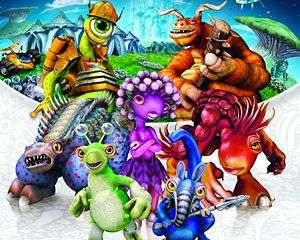
Spore: DRM hell
Spore ended up becoming the most pirated game of 2008, not down to its hype or quality, but as a form of protest against the security measures. People pirated the cracked version en masse, even people who wouldn’t otherwise have bought or even considered playing the game – just as a “fuck you” to EA. Ubisoft have come under a great deal of fire recently too, for releasing the PC edition of Assassin’s Creed Brotherhood with a DRM that requires you to have a constant internet connection, or the game closes down without saving your progress because you are obviously a terrible person. Granted, it has since been updated so that it will only periodically check for an internet connection, but only for one or two of the games using that security system. That’s when it gets into ludicrous territory – when even a slight internet failure can wholly punish you for supporting a company legitimately.
DRM isn’t the only reason for piracy though. Modern Warfare 2 became heavily pirated for the PC in 2009 because Infinity Ward dared to release the game without dedicated servers. How could they!? You best believe that Black Ops was pirated over five million times on the PC alone last year when they kept the servers out. No, wait, they didn’t. They brought back the servers and still got pirated to hell and back. Why? Retribution for Activision effectively destroying Infinity Ward due to their own greed? Possibly. It’s not really clear. Then there’s the case of the Humble Indie Bundle. Indie game developers put together a collection of five, later six, games for sale in one convenient bundle that consumers could pay as much as they wanted to for, with no DRM measures, and the ability to play them on Macs too. You could decide how much of your money went to the developers or was donated to the charities it was supporting. I don’t really see how you can say much fairer than that, right? Over fifty percent of people who acquired the bundle did so illegally. That’s a lot of money Child’s Play potentially missed out on.
It isn’t clear cut, and I can’t sit here and entirely condone or slam it, because I’ve pirated my fair share of stuff in the past. Most of it has been music, as well as many TV shows that I can’t wait months to reach the UK and, as ashamed as I am to admit it, also some games, which I feel worse about. After all, with a lot of the music, if I’ve liked it, I’ve gone on to see those bands live, bought their music in the future, or recommended them to my friends to try and make sure they’re supported. I’ll recommend TV shows to my friends if I like them too, but with videogames I just end up feeling weirdly guilty about doing it, even though I justified downloading them to myself. What kind of reasoning can I give myself for doing it if I’ve just been criticising the actions of other pirates? It’s not an excuse I feel to be particularly valid, but I’ve only pirated games that I couldn’t legally acquire, games that are decades old – mostly point and clicks or similar genres that I couldn’t get legal copies of. Indiana Jones and the Last Crusade, Sam and Max: Hit the Road, Leisure Suit Larry, and Police Quest (my dad had them on floppy disks… guess which data format is now completely useless?) are the main examples I can think of. In the past, I’ve also attempted to download Knights of the Old Republic, Sam and Max Season One, and one of the Broken Sword games, but none of those I could get working on my laptop for some reason.
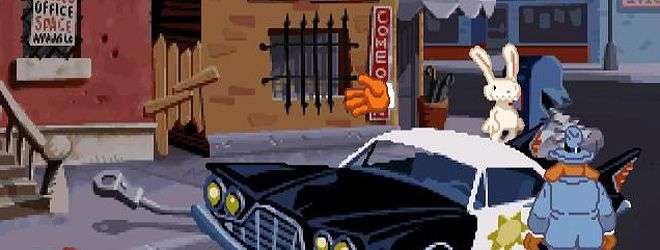
The thing is, as soon as I got a chance to buy those games legally I did so, and it’s led to me buying more games from the developers of those titles as a result. Being unable to get the Broken Sword download working caused me to buy it legally when I got the money to do so, and my frustration with trying to get Knights of the Old Republic to work made me more determined to play it, which then saw me buying it as soon as it arrived on Steam. I enjoyed Indiana Jones and the Last Crusade so much that when it arrived on Steam bundled with other point and click games I bought it without hesitation. Downloading Full Throttle – a game I couldn’t get my hands on – meant that as soon as I saw Grim Fandango in Zavvi (before they closed down their stores and became online only) I was running to the counter and handing over my money before I knew it. My inability to get a download of Sam and Max Season One working wound up with me buying the season legitimately when I got the chance, and I now own all three seasons that Telltale Games have done – legally – as well as buying their other titles whenever I’ve had a chance. So, knowing my experiences with pirating games, and knowing that I’ve since bought legitimate copies when I’ve then had the chance, what’s to say a lot of the other pirates don’t as well? As badly as some companies get screwed over, is piracy totally and utterly condemnable? Is what I did entirely justified? No. Was it a totally bad thing that I did? It’s a tricky issue, and that’s why it’s such an interesting subject to me.
Piracy in videogames is a subject about which I’ve always felt just one opinion could never suffice. Everyone has their own take on piracy and I don’t think it gives enough of a view of the bigger picture if just one person talks about it. To that end, I’ve recruited the help of my fellow swashbuckling crew mates here at GamingLives and threatened to make them walk the plank if they didn’t hand over their two doubloons on the issue. So what did the scurvy scallywags have to say?
Adam
Piracy is wrong – it’s rife, but it’s still wrong. Five or six years ago it was a major issue for the PC scene with an explosion in P2P traffic, which enabled hundreds of thousands to readily acquire the latest titles, without ever giving so much as a penny to the creators. Publishers would desperately try to enforce security features such as SecuROM and use restricted CD keys, but for every measure there came a countermeasure. The pirates always won, so that certain companies went so far as to install Digital Rights Management without ever informing the consumer, tantamount to malware, which many claimed was harmful to hardware and extremely complicated to remove from the system. With that in mind it is perhaps understandable why some vigilantes turned to piracy as a way of striking back at the publisher, but at no time have I ever felt right playing a pirated game.
Yes, I have done it. I have played pirated titles and it just felt wrong. Knowing that I was without any form of technical support when I would encounter a problem, that I didn’t have a manual to consult when I found myself stuck with the controls, and all the while paranoid that this version of the code was compromised with spyware and viruses that could destroy my computer in seconds. So why do it? Originally it was financial constriction, but once you get into a job and wake up to the real world, you understand the value of a product and why it’s important to support an industry such as gaming by making a financial contribution. There were times when I would use pirated copies of games as a benchmark test, to see if it would work on my system, as companies became slow to release demos and most retailers were unwilling to refund a PC title once its CD key had been used.
These days I just don’t see a place for piracy in gaming. Digital distribution via the Steam network has dramatically reduced the cost of PC gaming and provided a cloud service that you can readily access your gaming library from, as and when you need it. Demos are more widely available and the expansion of the gaming press beyond paid for blurbs give you a multitude of opinions, always on hand, about how well the game runs and if it’s even worth playing. You only need to download and install OnLive these days to be able to sit and watch the game played out from start to finish by an average Joe just like you and me.
That companies are becoming more protective of their products and IPs, and actively pursuing those who are siphoning funding away from development is good news. My only concern is that this is encroaching into the very grey area of modification, where gamers are creatively exploring the many possible uses of both hardware and software. ‘Jailbreaking’ products to explore the possible functionality of our purchases should not be something we should be made to feel ashamed of doing. That companies are being exposed as withholding features from the user so that they may sell it to them as additional content, or to only provide it in an updated model, is shameful, and the ingenuity of the user should be rightfully celebrated instead.
Ben
If you look at the list of the most pirated games from 2010, those figures can be interpreted slightly differently if you take into account the install base of each format. How many PCs compared to 360, PS3, Wii, etc. I don’t condone piracy at all, but the whole “PC this, PC that” over these figures is way off course. There are so many factors to take into account: install base, people’s stance on DRM, etc. How many people actually went out and bought the games after trying them out? You never get told those figures and, I suspect, never will.
Games may have been downloaded X amount of times, but it’d be interesting to see how many were actual working copies. I know you could get hold of Starcraft II through not so legal means, but it was never the whole game (from what I know, anyway). How many of the 360 games were kids thinking “I can get CoD for free because my mum won’t buy me it!” – only then realising their 360 won’t play a burnt disc.
A game pirated is not a sale lost. Many pirates have no inclination of buying games in the first place, regardless what format they choose to download for. To say a company lost X amount of sales is true in a sense, I suppose, but in reality I don’t think so. If those 1.1million people who downloaded Alan Wake wanted to buy it they would have. While pirates continue to damage a game developer’s opportunities to make considerable large sums of money, it’ll never be defeated, and in the end the industry will try and pick the wrong battles. This is probably why CoD is so high up on the list, even if Treyarch did come to their senses and throw in dedicated servers. What’s the difference between pirating a game and buying it pre-owned? The developer doesn’t see any money either way. I’d go as far as saying pre-owned hurts developers more, because more and more retail space is given to pre-owned games; just look at how your local game store has changed over the last five years.
Lorna
Most of us have done it at some point in our youth, but having grown up and woken up, reality hits home and one has to consider the consequences. I’m not a supporter of videogame piracy; I think it puts smaller devs at risk and generally pisses over a lot of hard work and effort. Some people have a warped sense of selfish entitlement that makes them think they have the right to something for nothing. They don’t. You may buy it and dislike it, or buy it and love it, but that’s the way it goes – that is what demos are there for. If more people had been in situations where, as can often happen in any business, they struggle to get paid for work they have done, or have had people demand more for less – or even nothing (and yes, I speak from bitter experience) – then perhaps they’d appreciate that they are taking the royal piss by refusing to pay for games. As for ‘sticking it to the man’ or ‘punishing the dev/publisher’? Seriously, wake up. Pirating Alan Wake won’t punish Remedy for reneging on the decision to put it out on the PC – you’re waving your pitchforks in the wrong place, that was Microsoft – it will just harm the chances of a sequel, robbing genuine fans because publishers only see the bottom line, regardless of anything else. It isn’t even anything to do with cost, as even games as cheap as Amnesia have been pirated.

Now that's a pirate...
Markuz
Piracy in the gaming industry is honestly not something I’ve ever considered, at least not since the days of the Amiga. Living in a particularly run down area of Glasgow, let’s just call it “Obrox” so as we don’t offend anyone from that area, there wasn’t much money going around and so I tended to spend more time at the Barras market buying meat and groceries than I would in a supermarket. To put things into perspective though, the ratio of “honest to goodness stores” to “knock off, stolen, and counterfeit goods” on sale by the traders in the Barras is perhaps 1:99, and I’m being very conservative towards the number of honest traders here. Out of all the dodgy stalls in the market, probably 30-40% of them were stalls trading in copied Amiga or Atari ST software. My friend worked in one of those stalls and, as such, I’d get handed bundles of games that they didn’t manage to sell over the weekend.
At this point in time, however, I wasn’t spending that much time gaming… the Amiga was more of a production machine for me and I was mostly rendering in 3D, designing fonts, working on album covers, etc. so although I had the pirate copied games I probably only played a dozen of them over the space of a year. As a 17 year old kid with no money, I didn’t consider the damage that I was doing to the industry by having these copied games but, by the same token, I didn’t have the money to buy them either, so I wasn’t taking MY share of their profits away from them as they just wouldn’t have got the sale in the first place.
Now, however, I don’t have a single copied game. Haven’t done in over twenty years, because I much prefer having the physical copy and the original artwork etc. As someone who develops software I can also empathise with the devs, because I hate finding out that someone is using our proprietary code without permission, and we DO come down hard on them. I believe that the gaming industry should be doing the same. I know of one particular guy who is very proud at being one of those people who had their Xbox banned from XBL because it had been chipped, and boasts about all the games he has weeks before release that only cost him a fiver. That’s his prerogative, but I wouldn’t lower myself to taking money from the devs like that by using hookie gear… and I’m also not stupid enough to pay a fiver for something that I could download for free, but that’s another story entirely. It may sound quite hypocritical to those who know that I DO download TV shows from the USA but that’s because they take too long to come out over here and I DO buy them on DVD as soon as they’re available. Won’t stop downloading TV shows, as I’m impatient, but I also won’t download video games either, as I know how precarious the industry is compared to television, and getting games a few weeks early isn’t worth becoming “that guy”.
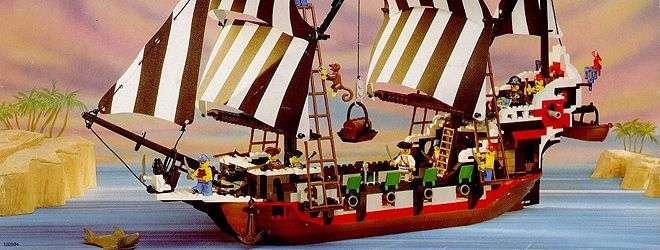
A real pirate game. Sadly the DRM meant that we couldn't get the box open without it being hooked up to a 36bps modem
Mark S
As someone who wants to eventually work in the games industry I can see the harmful effect of games piracy, especially on the indie game developers who work on a shoe-string, or with no budget. These guys sometimes don’t get the chance to get started in the industry because their game may be popular, but is then stolen by a couple thousand people. We all tend to turn a blind eye to piracy in the games industry, but when you see big companies going bust and cut-backs here and there… I’m sure some of that is to do with the overall economic climate, but I’m also sure a lot of it is because of people stealing profits from the game developer’s pocket. Sure, it probably doesn’t affect Activision or EA as much, but when all of the other studios are closed down you’re going to end up with Call of Duty 40003, and that’s a world I’m just not prepared to live in.
Most developers bust their arses bringing us games; nearly always to tight schedules and working all the hours they can to bring you a fantastic experience. I think, as gamers, we should try to remember that more and not steal from them. That’s what piracy is – stealing, no matter how you dress it up.
Michael
Gaming piracy is bad, but sometimes even I have resorted to it. Americans have had Blood Omen: Legacy of Kain, and Legacy of Kain: Soul Reaver on their PSN shop for a year, but we Brits aren’t getting it at all. I love those games,and really want them on my PSP so I tried downloading them via torrents. Luckily for Crystal Dynamics and Sony, the download was region locked and wouldn’t work. Bastards!
Pete
So, piracy…. well, I’m ambivalent about it in the computer industry I guess. I know it’s a bad thing and it brings all kinds of strife to the developers and studios and distributors, but occasionally it seems to me they charge far too much for what they’re producing anyway, especially if the game is poor! That said, I’m a bit of a stickler for rules, so as it is essentially illegal, then I frown upon it. I’ve never chipped a console in order to play those kinds of games and I never will. I’d be too concerned about it going wrong and screwing the console up completely for one thing. Not quite sure what I’m saying here. Bottom line is it’s illegal, so it’s wrong, but that’s never stopped me from copying music or downloading a film… just call me Mr Double Standards!
Rob
 In my opinion video game piracy shouldn’t be done whatsoever. The amount of time and dedication video game developers spend nowadays their titles is obscene; you have a huge team working on the next biggest title and somebody has to pay them. Pirating games, especially console games, basically ends up with game developers not getting a salary and could kill the industry. Luckily, despite living in London and being around a load of gamers, I have not come across someone who pirates games, and we as a gaming community like to buy games and enjoy them.
In my opinion video game piracy shouldn’t be done whatsoever. The amount of time and dedication video game developers spend nowadays their titles is obscene; you have a huge team working on the next biggest title and somebody has to pay them. Pirating games, especially console games, basically ends up with game developers not getting a salary and could kill the industry. Luckily, despite living in London and being around a load of gamers, I have not come across someone who pirates games, and we as a gaming community like to buy games and enjoy them.
I suppose you could argue about the age of the game, and whether it is worth getting it for free or not. If you take something like DOS-BOX on the PC, where you can pretty much download any old school title and essentially play it for free, then I suppose that is OK, because the game has run its course and also didn’t have about 70 people working on it. It is a tricky subject, I must admit, but all in all I am basically against the whole idea.
Samuel
I can understand why some people might feel compelled to pirate games. I don’t do it personally, but it’s more out of my being a collector and needing the genuine article for my collection than any higher moral purpose. Games are very expensive. Gamers tend not to be very affluent. The appeal is obvious, though clearly selfish. Games publishers and developers, however, make the situation worse, consistently, as though they don’t actually have a bloody brain cell between the lot of them, because the way they go about supposedly tackling piracy tends to be surmountable for the pirates, whilst only harming those poor idiots who do pay for their games legitimately. Ubisoft’s egregious system requiring you to be online at all times whilse playing some of their newest titles, for example, has led to my not playing games from franchises that I really love, such as the latest edition of The Settlers, purely because of the DRM. I live in a rural area and my internet connection isn’t guaranteed to be stable. Having my gaming access cut off at random because the game demands internet connectivity, despite being a single player game, any time my internet goes down is just unacceptable. I’m left, because of Ubisoft’s heavy handed and draconian stance, with two options: either I join the pirates myself, or I simply forgo playing the game. For now I’m going with the latter. Eventually however, I am probably going to reconsider and look at perhaps contemplating piracy myself, because it’s unfair that I should have to miss out by doing the right thing.
I currently despise the pirates for allowing themselves to be used as justification for these kinds of ridiculous impositions, especially on PC gamers, but to be blunt my ire towards the publishers goes much farther and deeper still. Eventually, something is going to have to give. And it doesn’t need to be this way at all. Some forms of DRM can work… the best example I’ve encountered is Stardock’s stance towards their games, such as Galactic Civilisations II and Demigod, where you can play the game without a serial code or internet access, but do need a valid code and an account with their Impulse distribution network to download updates, patches, expansion packs, and exclusive in-game extras. The games don’t stop working any time I can’t get online, and gamers are strongly encouraged to buy the games for the patches because they were intentionally released with game-breaking flaws on the disc. Nobody loses except the pirates. If only all in the industry were so enlightened in their measures…
I don’t pirate games now, but ‘back in the day’ I used to own a chipped Playstation that I would get copied games for. This is a bit of a poor excuse, but I obviously didn’t have a job, and my parents weren’t exactly rolling in cash at the time, so it was all I could do to play the latest games. Looking back on it, I didn’t see that I was doing anything wrong. To a kid like me it just meant free games! If I’m to think about it further I’m not sure what ‘actual’ damage I did to the industry, if any, as I wouldn’t have been able to buy 95% of the games I pirated, but I’ll leave that for another discussion.
Nowadays piracy is a lot harder to get away with, especially with everything needing to be authenticated online. I have mixed views on this as it pisses me off that I have to be connected to the internet in order to play some of my games. A good example of this is Starcraft 2. Even the single player elements require you to log into Blizzard’s servers. However, at the same time I completely understand why things like this are done. It’s a bit of a shit situation that as a consumer it requires me to compromise a little and meet the developer in the middle. I’m willing to do it for the time being, but I hope that something better comes along before too long.
Looking ahead the recent news of the PS3 having its security blown to bits by a hacker has really pissed me off. It’s only a matter of time before custom firmwares are released that will allow people to bypass the Playstation’s formerly robust security measures, so that copied games can be played as if they were genuine. There are those that will argue that it would only be the same as when the original Playstation was cracked, but nowadays it’s fair to say that the development process is far more complex and expensive than it was in the past, and therefore developers and publishers have a lot more to lose. As the Playstation is my main console I hope that the quality of the games being released doesn’t slip too much as a result of lost sales thanks to piracy.
Stu
I am generally against video games piracy. However I also subscribe to the “try before you buy” philosophy where I’d rather give something a test before parting with my rather limited spending money. For instance, I wouldn’t ever buy a car without taking a test drive first. Yes, we may be talking £40 versus £14,000 and you may argue that a £140 dishwasher wouldn’t get a test drive, but there is something fundamentally different between the two. The dishwasher is purely a tool, whereas arguably, the car is a hybrid between tool and an experience, especially as we tend to spend so long in them! Likewise, most digital purchases are done for the visual, audio, or gaming experience and because liking an experience is a matter of personal taste, I think it is important to be able to sample it before going “all-in”.
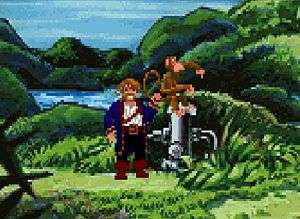 That said, when it comes to the argument for piracy in relation to “try before you buy”, I don’t think it stands up in gaming, because of digital distribution, and similarly not for music either. Most online MP3 retailers now allow 30 second previews of most songs on an album, enough to give you a taste at least to tempt you into spending your £5-10 on the album. We’ll ignore radio purely because you have no control over the songs played. Computer games have had this preview feature for years through demos. Some are time limited, others are just a level, but it’s usually enough to work out if you’ll like the game. Try before you buy as a reason for accessing the full pirated game for free? Not a viable argument in my opinion.
That said, when it comes to the argument for piracy in relation to “try before you buy”, I don’t think it stands up in gaming, because of digital distribution, and similarly not for music either. Most online MP3 retailers now allow 30 second previews of most songs on an album, enough to give you a taste at least to tempt you into spending your £5-10 on the album. We’ll ignore radio purely because you have no control over the songs played. Computer games have had this preview feature for years through demos. Some are time limited, others are just a level, but it’s usually enough to work out if you’ll like the game. Try before you buy as a reason for accessing the full pirated game for free? Not a viable argument in my opinion.
There is also the argument of cost as an excuse for piracy. On release, games are now £40 or £50, which is quite a large sum of money to outlay all at once and with many games on offer it is easy to see why people may turn to piracy, but that isn’t acceptable. Piracy is still illegal and it isn’t as though there are ways to help ease the cost. Games at full retail price barely stay that way for more than two or three months before they are reduced to around £25. Already half price. £25 for an 8 hour romp with possible multiplayer or replays adding to its life, versus £8 for a 90 minute movie at the cinema at one use per pop… you can’t say it’s bad value for money.
So you’ve had your fun and are bored with the game – you can sell it on second-hand. In fact, shops will even buy it back, allowing you to build credit towards another purchase. So £25 for the purchase then a minimum £5 rebate when you’re done. This is becoming extremely good value for money. I’ve not even gone into the likes of rental where £3 can net you a new release for seven days.
Basically, if you “must have” the latest release in your grubby mitts then you have to pay the full retail price, just like if you wanted the latest iPhone or any other highly desirable commodity. Going ahead and pirating it is just plain wrong, regardless of the high cost. The only valid reason I ever ‘condone’ for video game piracy is where publisher imposed DRM destroys the gaming experience. Requiring an ‘always on’ internet connection, for example, is a terrible, terrible thing. Why make your paying customers suffer? If anything it will only drive them away. Any DRM should be non-intrusive to the gaming experience.
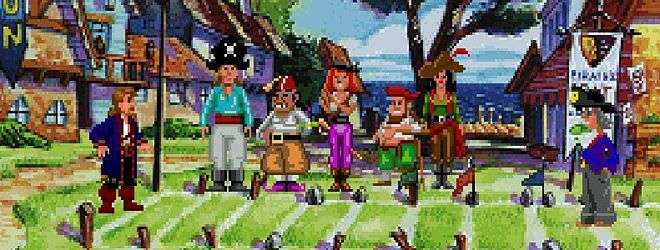
![]()
So there you have it. We’ve shared out all our rum, but it’s not over yet. There are still many tales to tell, and this is, as I said before, a massive subject that is quite personal to each individual. So this is where you come in. We want to hear your opinions on the matter too. For it? Against it? How has it changed the way you’ve played games if at all? Please let us know in the comments below. And be nice, or we’ll feed you to the sharks.
Last five articles by Edward
- Best of 2015: Journey's End: A New Beginning
- Journey's End: A New Beginning
- You Can't Choose Your Happy Ending
- Okay, Let's Fix Comedy In Games - The V-Effekt
- Time Keeps On Smashing Away














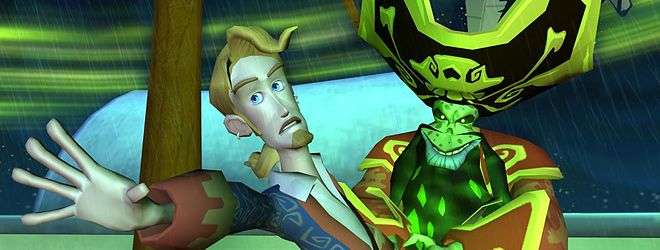
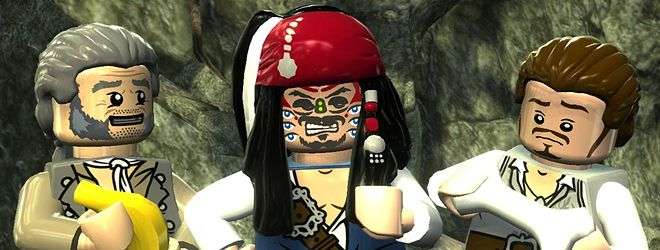

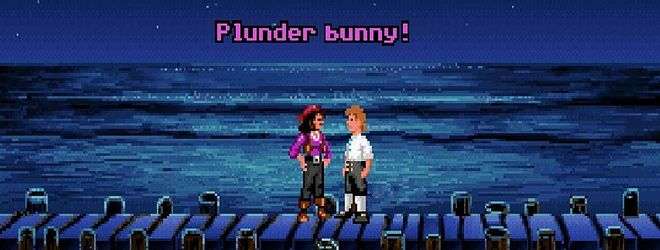


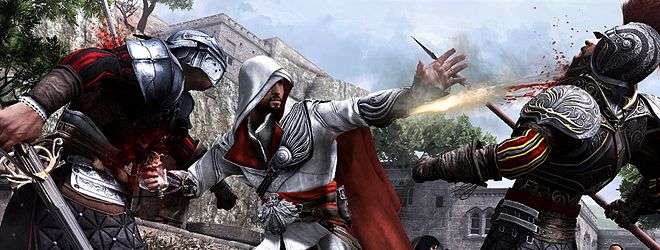







Food for thought there chaps (and Gaming Lives Matriarch).
Personally I pirated the fucking cock right off of the PS1 and PS2 and ultimately it harmed my gaming experience. Too many games, never focusing on one enough.
So I’m legit as fuck on the 360 and even though I play some lemons, I much prefer it this way.
Pricing sucks these days, the publishers are all cocksuckers but legit is the way to go.
But not on a DS. Natch.
As much as people argue for and against I think arguably it comes down to one simple argument that is not just centered on piracy, but any form of theft.
Do you want something immediately, for free or do you want something you have to part with cash for?
That is the most basic fundamental question here. Next you move into the mentality of the person and their guilt. Often times you’ll find that this guilt depends on how you feel about the person you steal from.
Ultimately, the “You wouldn’t like it if it was you.” phrase comes to mind. Musicians are often the least likely to download music illegally. People working in the movie industry are less likely to torrent films. Games devs are less likely to copy pirated games.
So, for someone who doesn’t have the means to buy a £50 game and has no ties to any of the aforementioned industries and would rather have something now, for free with zero consequence…
You can argue there’s no excuse, but these actions can be reasoned.
I had copied games for my Atari. I was a kid with no money and didn’t realise how “wrong” it was. Friends would swap floppy disks after school and I remember Paperboy being one of them. I haven’t pirated any games since and wouldn’t even know how to!
Good piece, Ed. It is a tough issue and there are a lot of wildly contrasting opinions on it. Generally, most people I run across are of the view that it isn’t a good thing, though some veer towards the grey middle-ground on occasion. However, you get the blatant arse-hats who openly boast about it on forums, and who are quite unremorseful about stealing from indie developers because they don’t want to pay a fiver or so for a game. That is fucking disgusting.
Coming up with a good way to beat it is never easy without risking alienating the genuine user-base. Patches, bonus content, and restricted support all seem to be non-intrusive ways, but we’ll see. As more and more folk move back to the PC as a gaming platform, the strain may well start to show a great deal more, although with PC titles generally being far cheaper than console releases, one would hope not… but in my experience, that rarely matters to some wankers.